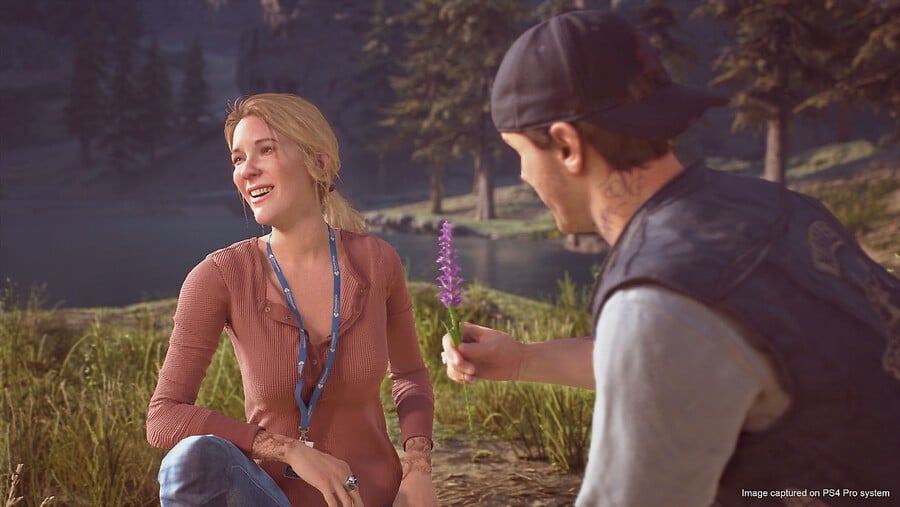
Love it or hate it, Sony’s biggest new exclusive Days Gone has had a downright terrific launch, coming hot out of the gates. We recently got the chance to chat with the title’s composer Nathan Whitehead about his work, and his first time as lead composer on a video game.
Push Square: One of Day’s Gone’s most publicised and unique features are the sheer number of Freakers that can be on-screen at any given time. In what ways did conveying that scope pose a challenge musically, and by extension, what approaches did you take to nail it? Was there anything that you tried in this regard that ultimately didn’t work that you discarded?
Nathan: It is overwhelming and terrifying when you see this Freaker horde coming at you and the challenge was evoking that relentless terror with the music. I think the first goal was coming up with a palette that felt right for the Freaker world. I wanted their music to feel jagged and feral. I used guitars, piano, and strings but I applied a lot of distortion and processing to mangle these sounds into their Freaker versions.
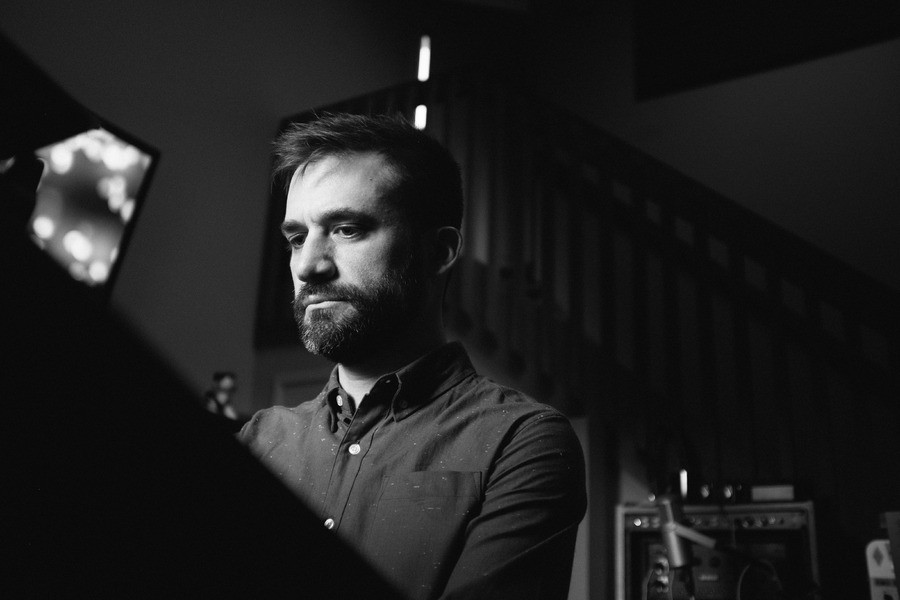
For the Horde specifically, I relied heavily on this pounding rhythm that grows through the end of the piece. One element was me bowing this quick rhythm on a resonator guitar. I distorted that and it became this raspy, edgy pulse. I imagined this sound as the breath of the Horde. I layered more percussion and then orchestra on top and it grew into the sound of the full Horde onslaught. I hope that players feel this sense of no escape, that the Freakers just keep coming.
There weren’t really elements I discarded but I did need to add some elements as the Freaker theme progressed. Initially, the Freaker music was just this grisly, pulsing track that grew bigger and bigger. Over time and with many discussions with the amazing team at Sony, we realised the Freaker theme needed to speak to the tragedy of the infection as well as the terrifying Horde. Melody was the answer. Introducing the Freaker melody suddenly made the track feel more connected to the rest of the score and also helped the music have a tragic quality. When you hear this tune on piano at the end of 'The Freakshow', my hope is that the player feels some of that tragic loss of humanity.
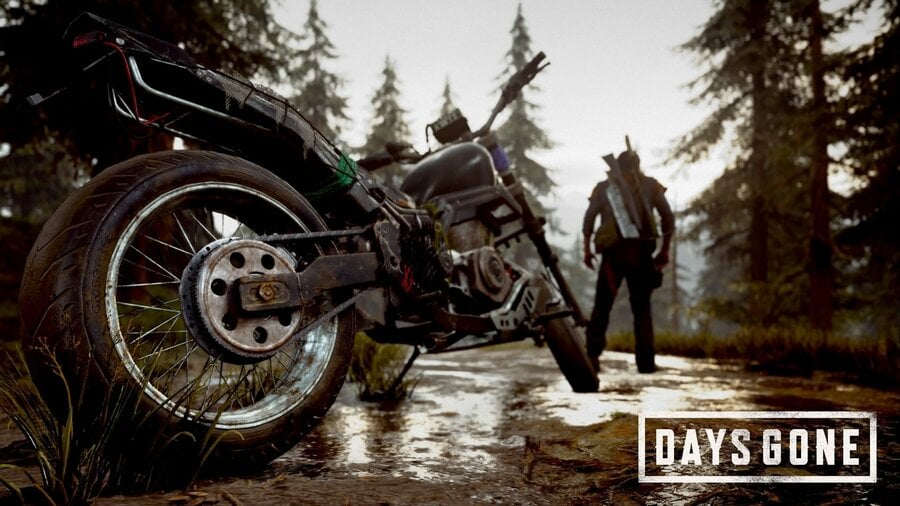
The biker gang lifestyle/aesthetic is a relatively rare one when it comes to gaming. In what ways did that trend help inform the kind of soundtrack you wanted to create for this game? Was it a factor at all? Did you actively try and play against type in any way?
The biker aesthetic was definitely a factor in determining the tone for the score. I wanted to avoid going full Easy Rider / classic rock, but I thought the score needed to feel believable to biker culture. Almost like something Deacon might listen to at times. One thing we did that I think really helped this side of the score was to record a rock band live in the studio. Even though I was avoiding a straight rock sound, having these musicians playing together really gave some of the biker-focused pieces an authenticity I love. Your bike is such a critical part of the game and I loved imagining riding the roads in this beautiful and dangerous setting. I hope some of that authenticity comes across in these moments.
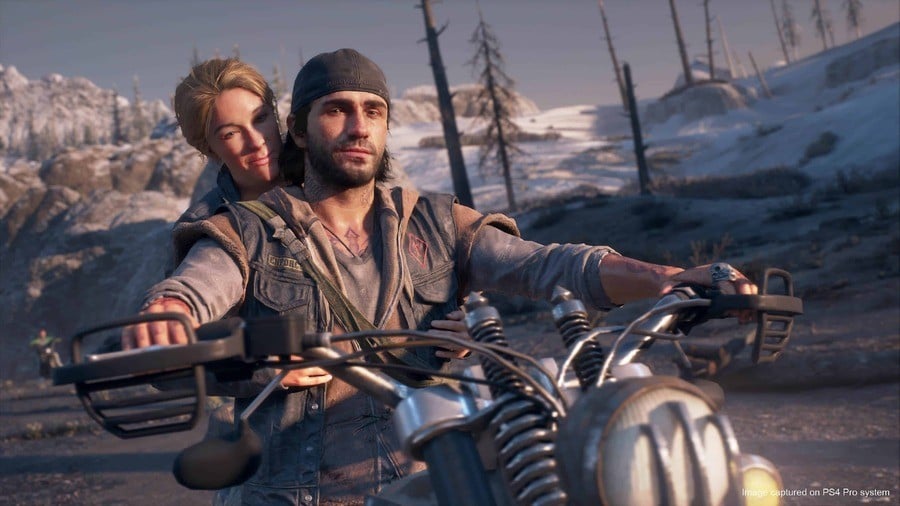
Are there any specific areas of the soundtrack that you think will catch players off guard? Something unexpected in the texture of the music? An instrument we wouldn’t expect to hear perhaps?
From the very beginning, I was really excited by the emphasis on the story in Days Gone. I think this steered the music into more emotional and introspective places than you might expect for an open world action survival game. It’s not that I wanted to catch players off guard, but my hope is for players to be moved by the story. Actually, maybe in a way, I do want to catch them off guard! I think that’s often what good stories do. We become invested, we start to care, and then, suddenly, we’re having all these feelings. I love those moments and I want players to have those experiences.
This isn’t your first time working on game music, but (as far as I can tell based on IMDB) it is your first time as the composer on a title. In what ways did having previously worked on games inform your process? Did it help or hinder the process?

You’re right, I’ve worked on a lot of games over the years while working for other composers but Days Gone is my first solo game credit. All my experience being on the team for these other games was invaluable. Each project is different and I was able to become familiar with writing interactive music and I could get a feel for the enormous scope of writing a video game score. That was extremely helpful when it came to taking on the music for Days Gone. Of course, a significant difference on those games is that I was not in charge of writing main themes and finding the overall tone of the music. It’s daunting to be responsible for the overall musical tone but I love the challenge and that is one thing that makes this project so rewarding.
What nucleus did you build the score around? Did you start with a character theme? Game theme? Something else entirely? Is there a “patient zero” so to speak in regards to where the sound for the game developed? Additionally, any pieces you’re especially proud of? Either from how quickly they coalesced into what you were trying to get, or just how long it took to get something exactly where you wanted?
The main theme was the first piece I wrote and that came together very quickly. I reference the main theme constantly throughout the score and it really helped to have that locked in so early. I also really like the track 'I Remember'. It’s about Deacon’s past and I wanted it to have this wistful longing. In addition to the main theme, it’s another piece that captures some of the spirit of Deacon’s journey for me. I’m really happy how that one turned out.
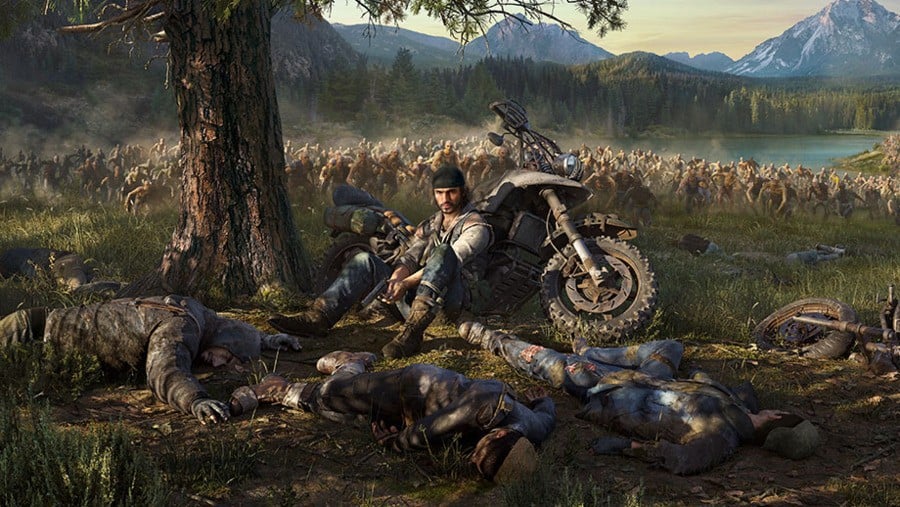
That and the Freakers theme were the first two pieces I wrote. These two were definitely the main pillars of the score. The main theme really focuses on Deacon, his journey, and his past. And the Freaker infection brought the downfall of society and put Deacon, and the world, in this predicament. There are threads of these two pieces throughout the score. As the game progressed, we ended up needing a few more musical pillars in our arsenal as Deacon meets new people and travels to new places, but these two themes together would be the musical “patient zero”.
In what ways did your approach to the “standard” gameplay score differ from that to what you did for the cutscenes? Because cutscene scoring is more traditional in the sense that it functions more like a score for a film or show would. Did you factor in the looping that might be necessary for players that dawdle in a specific area? Or were all of those aspects tackled elsewhere?
Yes, I definitely had to approach the interactive gameplay music differently. The team at Sony is amazing at designing these interactive music systems and the interactivity really changed how I needed to write the music. I ended up composing pieces made up of a few layers. All the layers playing together worked as a single piece and individual layers could be turned off or on to shift intensity levels in response to the player’s actions. The engine even does this on musical beats which is amazing. Another approach I really liked was to write longer transition pieces to help the score end in a seamless, musical way. Instead of simply having the music fade out, it would feel more like a musical outro where the arrangement thins and organically transitions to moments with no score. Getting the interactivity right required a lot of back and forth with the Sony music team. It was a fun puzzle to solve and I think these details can really add to the immersive experience.
Finally, for all my first-time interviews I always like to close with asking about how you got into game composition? Is it something you consciously decided you wanted to do? Did someone approach you with the idea? What brought you to the medium?
I’ve always wanted to do more game composing. Part of that desire is due to my own experiences with games growing up. I had some really magical moments where I would get totally lost in the world of a game and I can remember those like it was yesterday. I’m really excited to, hopefully, help create those experiences for other players. I think it comes down to storytelling being such a rich part of human culture. It’s why I love movies and why I love this job. Games offer amazing storytelling opportunities with the interactivity but also with their massive scope. Taking a player on a journey for 30 or 40 hours is such a different experience compared to a two-hour movie and it’s so rewarding as a composer to be a part of that.
That does it for our interview. You can stream the soundtrack here via YouTube if you want to hear the score for yourself, and it's available digitally in all the usual places, too.





Comments 19
He did an amazing job, I really like the music in Days Gone. An underrated aspect of the experience really.
I really can't recall any of the music off the top of my head. It's not bad for sure, and it blends well into the game's atmosphere.
Although I'm only at around 15 - 20 hours in, so maybe that's why. That being said I really just don't feel like starting Days Gone up this weekend. I took a break after I'm forced to find fuel to progress a bounty. OK game... Sure.
I personally think the main theme is really good. Very memorable like Horizon's theme tune.
@Constable_What @get2sammyb Honestly one of the biggest surprises for me with the music so far (I'm playing through the game currently) is just how emotional it is. In the marketing leadup to the game's release, I just assumed the score would have a more widespread on "normal" rock music, but the soundtrack juggles a much wider variety of sound than I was expecting!
The music in this game is amazing! Thank you kind Sir.
now bend studio can give me a syphon filter remaster.best ps1 game ever.make it happen bend studio 😇.word up son
@playstation1995 Who do you think Would be the main character of this new game if they ever make it Will it Be Gabe logan or Will it Be Lian Xing
@Areus gabe logan definitely.did you play the psp syphon filter games.syphon filter Logan shadow have a huge spoiler at the end 🙊🙈😳.word up son
Was already interested in the game of course, but this will definitely have me listen differently to the soundtrack. Great interview, and Nathan sounds like a nice person.
@playstation1995 Yeah i have thats why i asked who do you think the main character would be.
The music is good. Really like the title theme and the music that plays when a horde appears.
@Areus since the end finish of a cliffhanger.and he look like he died.i don't think that he passed away.he probably had a bulletproof vest at the end.word up son
@playstation1995 Lol So he playing dead to take that retirement he was talking about but my take from that scene is that he is ether in a coma or a near death state but the only people that do know for sure is bend lol
@Areus it probably was a set up from the agency that gabe Logan work for.and he faked his death.and now he's back.and the agency was sinister from all that time.word up son
@get2sammyb I saw the pic and thought this was an article about Uncharted. Then saw Days Gone and wondered why the caption didn't mention Elena. Then I realized b/c you didn't write it.
Without having a standout theme, the music is really good and helps to build tension.
Playing with headphones on, I ran into my first horde last night and damn it was scary. The music was perfect for it.
@roe Absolutely. I'm playing through it right now too, and anytime that swarm theme starts to play I start looking for a means of getting away as quick as i can haha
@gbanas92 I wasn't too sure what was going on at first as I thought it was just a standard Nero checkpoint like the first few I'd done. Cut the speakers off, get gas for the generator and have a look inside, etc.
But as soon as I crept onto the roof the music started to get a little louder, I look around and see a couple of freakers coming out of a train. "Meh, no big deal" I thought as I moved forward only for the music to really amp up and an absolute load of them poured out. So I run to my bike but just as I make it I'm getting crowded out and killed.
Moments like this are really special in games and stick with you forever. I'm looking forward to more things like that the further I get into this game.
@roe I'm starting to get pretty far into the game and those hordes are still absolutely terrifying haha. I more or less had the same reaction the first time I encountered a horde. Oh there's just a few extra zombies, no big deal. NOPE. Gotta run right now! I think I was so panicky the first time I ran into one I didn't even notice the shift in music. Now...anytime it starts I'm immediately on edge. I thought the threat of them woulda worn down a bit by now, but nope!
Tap here to load 19 comments
Leave A Comment
Hold on there, you need to login to post a comment...